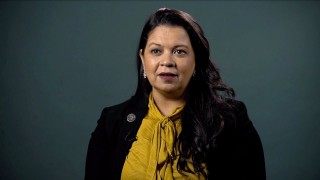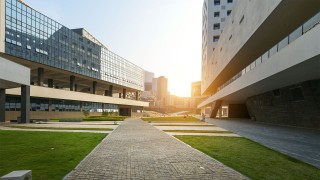The power of collaboration and regional partnerships

Key takeaways
- Countries across the Middle East are collaborating to modernise higher education.
- Joint efforts include investments in research, innovation and economic development.
- A shift to a digital approach enables modernisations like data analytics and AI.
Despite encompassing a diverse spread of 18 countries, the Middle East region is increasingly united in its approach to higher education. The sector is relatively young in comparison to its Western counterparts, yet it has experienced impressive growth in a relatively short period of time. Shifting demographics, economics, politics and a modernised view of equality within the sector have driven a move towards the internationalisation and digitisation of the Middle East’s higher education institutions. Darren Hunt, Senior Vice President and Managing Director of EMEA and APAC at Ellucian, explores how key institutions in the Middle East are harnessing the power of the digital community to drive cross-campus innovation and collaboration.
A key focus for economic development
Governments across the Middle East have consistently emphasised the importance of higher education, with various initiatives and organisations focussed on driving innovation and enhancing output. With an emphasis on economic diversification, the Gulf Cooperation Council (GCC)—which includes Kuwait, Saudi Arabia, Bahrain, Qatar, the United Arab Emirates and Oman—identifies education as absolutely key to building the region’s economy. To this end, the GCC is focussed on improving education and fostering collaboration between member nations and international partners, investing billions in the past decade, with investment in research and innovation consistently highlighted as a policy priority.
This is seen in collaborations such as an agreement that the London School of Economics and Political Science (LSE) has had1 with a number of Arab universities since 2010 to support academic collaboration and knowledge sharing. Likewise, despite sitting outside the GCC, the Egypt 2030 initiative identifies education as a key part of the country’s development strategy, with objectives set to improve the quality of the educational system and enhance its outputs. With the majority of research output across the Middle East region currently carried out in collaboration with international co-authors, and with the intensity of collaboration within the region expected to grow, finding a way to work collaboratively and foster academic community is key.
However, it isn’t just about cross-university collaboration—it’s about ensuring that knowledge-sharing pathways are created throughout the universities themselves. Without proper tools for collaboration, essential information and expertise can be overlooked. Not only does this impact how much an institution may succeed in rankings, it can also impact how efficiently that institution is run, causing financial ramifications.
The need for a digital approach
To meet this need for collaboration, technology and digitisation are being adopted and applied at incredible speed throughout all universities in the region—and the current coronavirus pandemic is only fueling the accelerated pace. The UAE’s national strategy on innovation and for AI highlights the use of AI and technology in education, driving the focus on developing “smart content,” such as virtual lectures and digital resources which utilise online or cloud-based learning platforms.
In addition to tailoring the curriculum to the needs of the individual, digitisation can be used to facilitate remote learning, expedite administrative processes and provide a vital point of engagement for digital-savvy students. Systems from providers such as Ellucian, a specialist supplier of student information systems (SIS) and enterprise resource planning (ERP) systems for higher education, can help to provide universities with a cross-platform tool which combines all of these aspects, with built-in analytics which can be harnessed to drive future performance.
In fact, in March 2020, The Islamic University of Lebanon (IUL), Nile University (NU) and Global Academic Foundation (GAF) all opted to implement Ellucian’s PowerCampus software, via the company’s partner, ITB (an ITG company). PowerCampus will enhance self-service functionality and provide communication and collaboration tools for faculty, staff, students and alumni across all three universities. The software will enable NU, IUL and GAF to run all administrative processes including admissions, registration, management of student records and dynamic reporting services from one place. The solution effectively provides the universities, along with many others in the region, with a digital campus.
Ahmad Koubeissi, Eng. Ph.D., Advisor to the University President for Information Technology Affairs at the Islamic University of Lebanon, comments: “The student information system is the core of any educational institution. We needed an international student information system that can evolve with the growing needs of the institution and that could be tailored to our specific requirements. PowerCampus will provide IUL with a planned and formidable foundation to run all administrative processes including admissions, registration, management of student records and dynamic reporting services.”
As well as being key to enhancing operational efficiency and driving collaboration both internally and with other universities, the flexibility of the solution provides a means of continuing to operate and manage key processes in circumstances such as the coronavirus pandemic, without adding further strain to staff resources.
Building a collaborative ecosystem
With around 60 percent of people in the Middle East under the age of 30 and smartphone penetration across the region at nearly 100 percent, there is no doubt that digital technology is key to everyday life in the region. The digital revolution has changed the way people communicate, work, consume information and build relationships. Embracing that change and using a system that facilitates digital communication and collaboration in real-time is key to staying relevant.
For example, Nile University is using its IT systems to create an automated ecosystem comprising all aspects of the academic lifecycle and its correlated administrative functions, in which PowerCampus plays a key role. The result is a positive impact on the bottom line. The university’s automation ecosystem, which integrates student records and academic lifecycle with PowerCampus, provides students, staff and decision-makers with an intelligent means to manage and improve the data and finance flow within Nile University.
Professor Wael Akl, Provost of Nile University, comments: “Using such technology facilitates the streamlined progress throughout the academic lifetime of each student, as well as provides the students, staff and the decision makers the necessary real-time tools to measure and improve outcomes and eventually optimise resources for better results.”
Collaboration to bring Middle East universities further onto the world stage
Countries across the Middle East have made commitments to international growth, encouraging students from across the globe to choose to study in the region. This is evident in the number of Arab universities climbing up the tables in the world university rankings, with Ajman University breaking into the top 3 percent just last year.2
For those institutions wishing to compete on this world stage, keeping up with growing technology trends is critical. Students expect to be able to easily contact staff, whether they are on campus or not, and staff expect to have ready access to data and student information to keep the university running and help students meet their graduation target. The key is a robust data system that runs behind the scenes to empower collaboration. With solutions like PowerCampus, combining recruitment, admissions, registration, management of student records and billing processing with strong reporting capabilities, universities in the Middle East will be well placed to compete globally.
For more information about Ellucian’s suite of solutions and how they can enhance communication, facilitate process efficiencies and enhance the student experience, visit www.ellucian.com.
[1] Source: http://www.lse.ac.uk/middle-east-centre/research/collaboration-programme
[2] Source: https://www.ajman.ac.ae/en/story/2018/qs-world-university-ranking-2019-lists-au-among-top-1000-globally-equal-to-top-3-in-world




